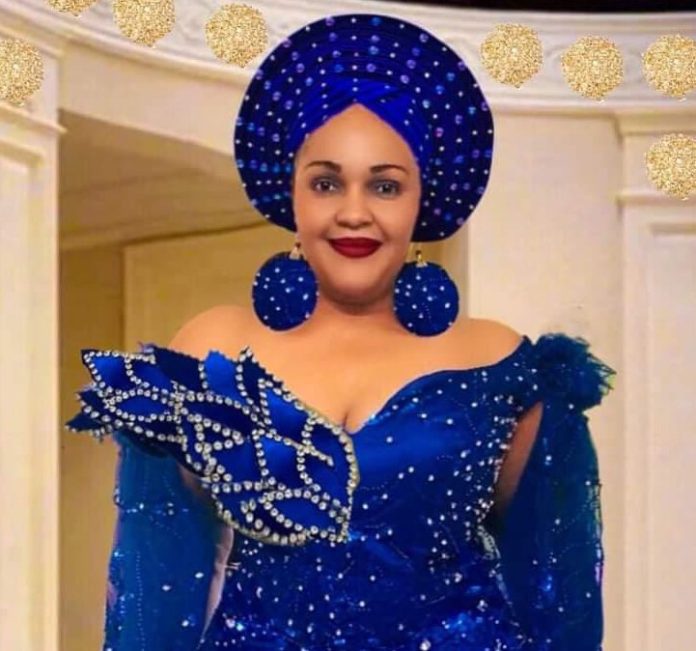The migration of Nigerians to America has been a notable trend, contributing to the cultural diversity and economic growth of both nations. Nigerians migrate to the United States for various reasons, including pursuing higher education, accessing better employment prospects, and seeking a higher standard of living.
Today, Iya Magazine highlights the remarkable journey of a Nigerian woman who relocated to America in the early 1990s to further her education. With two degrees to her name, she has since become a highly esteemed and dedicated American schoolteacher, inspiring countless students with her passion and commitment.
Mrs. Winifred Oby Chukwurah-Osakwe is from Onitsha, Anambra State. She basically grew up and schooled in her hometown. After she completed her secondary school education, it was very challenging to secure admission into a Nigerian university. It was at that point that her elder sister decided to process an American visa for her.
Cultural shock
Stepping onto the unfamiliar soil of Louisiana, Winifred found herself confronted with a series of cultural shocks that challenged her perceptions and broadened her horizons. The first notable cultural shock for her was the weather. Having grown up in Nigeria’s warm and tropical climate, she found herself facing contrasting weather patterns.
America is a land of possibilities. By being proactive, taking risks, and embracing the unknown, I’ve unlocked doors I never thought possible
“I left Nigeria thinking I’d wear my favorite dresses all year round, but the weather here made me stock up on jackets and umbrellas!” She exclaimed.
Another cultural shock that caught her off-guard was the lack of close-knit relationships. Coming from a collectivist culture where community and family bonds were highly valued, she was surprised at the emphasis on individualism prevalent in American society.
“In Nigeria, we’re all about greetings, hugs, and interacting with one another. But here, it’s like personal space is the Holy Grail! Your neighbor can walk past you without greeting you. You can’t even go to their house without an invitation. Otherwise, you might be charged for trespassing. In simple terms, everyone loves to mind their business, and that’s not too good.”
Education and career
After Winifred moved to the USA, she obtained both her B.Sc and Master’s degrees from Grambling State University, Louisiana. After she got married and moved to California, she also obtained her Mathematics Teaching Credentials from California State University, East Bay.
“Gaining admission into most American universities is very easy, especially if you have your tuition fees. Even some schools give scholarships to students. Whenever I look back at my past, I am always very glad that I couldn’t secure admission in Nigeria because that was why my late elder sister brought me here. Honestly, life here is a whole lot better, and I am enjoying it every day.”
Whenever I look back, I am always very glad that I couldn’t secure admission in Nigeria
When asked about her career and specialization, she said, “I am a mathematics educator at Dallas Ranch High School in Antioch, California, USA. I have been teaching mathematics for 25 years. People from Anambra are known for managing businesses. So, I am also a businesswoman who owns an online fashion store called Derageli.”
Racial discrimination
While many people living overseas often experience racial discrimination at work or school, Winifred said she had a different experience. She said, “I’ve been really lucky, you know. I’ve never faced any overt racial discrimination at my workplace or in my interactions with people. It’s been a supportive and inclusive environment.”
According to Pakistani education activist Malala Yousafzai, “If you go anywhere, even paradise, you will miss home.” When Winifred was asked if she missed home, she said,
“I don’t miss home, and I think it’s because I have spent most of my adult life in this country. Moreover, my parents, aunties, and other people who really meant so much to me have passed away. Other members of my family live in the USA, so there’s no one back in Nigeria to return to.
“The only thing I am missing is easy access to fresh vegetables, meat, and our native soups. I wish I could have a taste of them one more time. Even the ones we prepare or purchase here may not have that native taste.”
I’ve never faced any overt racial discrimination at my workplace or in my interactions with people
Family
Winifred has been married for 26 years, and she has four grown children. Raising a Nigerian child in America comes with its own set of challenges. When asked how she was able to teach her kids their indigenous culture, she smiled and said, “It was important for me to create a sense of connection and pride in our Nigerian heritage from an early age.
“I made sure to share stories about our family history, our traditions, and the values we hold dear. We celebrated Nigerian holidays and cooked traditional meals together. I also encouraged them to speak our native language at home and connected them with Nigerian community events and activities.
“It wasn’t always easy, but seeing them grow up with a deep appreciation for their Nigerian identity makes it all worthwhile.”
Lessons from living in America
After living in America for over 30 years, Winifred reflected on the valuable lessons she had learned. “Resilience,” she emphasized, “is the foundation of success. Overcoming challenges and maintaining a positive mindset is key to navigating life’s obstacles.”
She spoke passionately about seizing opportunities, stating, “America is a land of possibilities. By being proactive, taking risks, and embracing the unknown, I’ve unlocked doors I never thought possible.
“These lessons have shaped me into a resilient, open-minded individual. Finally, I am grateful for the transformative experiences and the opportunity to make a lasting impact in my adopted home.”


